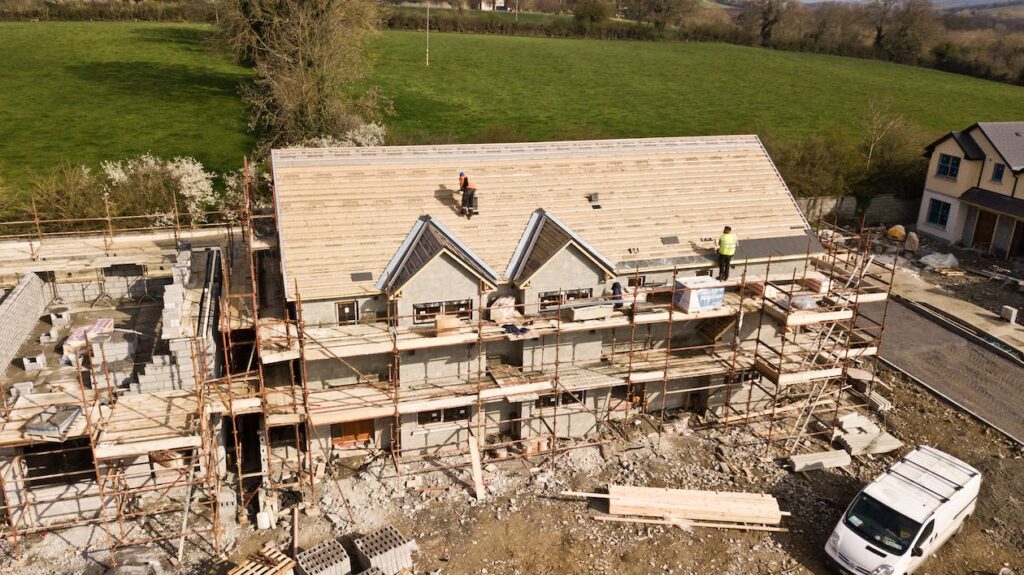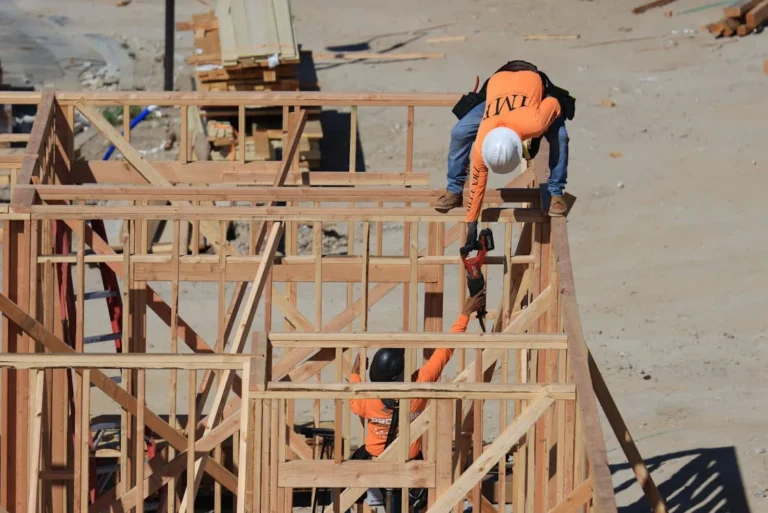Australia, known for its stunning landscapes and vibrant cities, is also a hub for construction projects that range from iconic skyscrapers to critical infrastructure developments. These projects play a pivotal role in shaping the country’s urban environment and driving economic growth. However, the success of these ventures isn’t just a result of skilled labour and quality materials; it hinges significantly on effective project management. In this blog, we’ll explore the paramount importance of project management in ensuring the success of construction projects in Australia.

The Australian Construction Landscape
Australia’s construction industry is marked by its diversity, with projects spanning residential, commercial, civil engineering, and infrastructure development. From the bustling cityscapes of Sydney and Melbourne to remote regions, the country’s construction sector is in constant motion. With a strong economy and a growing population, the demand for new buildings and infrastructure remains high.
However, the complexity of construction projects has evolved over the years. Increasingly stringent regulations, environmental considerations, safety standards, and changing technological landscapes have made project execution more intricate. This complexity underscores the vital role that effective project management plays in ensuring that construction projects in Australia are completed on time, within budget, and to the highest quality standards.
The Role of Project Management in Construction
Project management is the discipline of planning, organising, and overseeing a project from inception to completion. In the context of construction, it involves coordinating a multitude of elements, from procurement and scheduling to risk management and stakeholder communication. Here are several reasons why project management is indispensable in the Australian construction sector:
Project Planning and Coordination
Construction projects entail numerous tasks and processes that must be precisely coordinated. Project managers create comprehensive project plans, outlining timelines, resource allocation, and tasks. This meticulous planning ensures that every aspect of the project is considered, from acquiring permits to managing subcontractors.
Budget Management
Controlling costs is undeniably a paramount concern in the complex world of construction, where budgets often represent the financial backbone of a project. Within this context, the role of effective project management takes centre stage, extending beyond mere budget development to encompass a comprehensive spectrum of activities that span the entire project lifecycle. It commences with the meticulous formulation of budgets, which entails not only the estimation of direct construction expenses but also the consideration of ancillary costs such as permits, inspections, and unforeseen contingencies. However, the true essence of cost control through project management lies in the ongoing process of monitoring and adherence. This dynamic approach ensures that expenditures align with the established budgetary framework, acting as a steadfast bulwark against cost overruns that could otherwise jeopardise project timelines and financial viability.
Through vigilant monitoring, project managers track the allocation of resources, identify deviations from the budget, and pinpoint potential areas of concern. This proactive stance empowers them to take corrective measures swiftly, whether it involves renegotiating contracts, optimising resource utilisation, or revising project schedules. In essence, the process of monitoring is akin to a financial compass that guides the project through the turbulent seas of unforeseen challenges.
Moreover, effective project management fosters a culture of fiscal responsibility, wherein all team members understand the financial implications of their actions. This collective awareness, cultivated through clear communication and transparent reporting, contributes to a culture of cost-consciousness that permeates every facet of the construction endeavour. It encourages the prudent utilisation of resources, the avoidance of wasteful practices, and the pursuit of value engineering opportunities that optimise project outcomes while respecting budget constraints.
Risk Mitigation
Construction projects, by their very nature, are complex undertakings that exist at the intersection of numerous variables, and as such, they inherently harbour a multitude of risks that have the potential to ripple through the project’s lifecycle. Unpredictable storms, torrential rains, or prolonged heat waves can impact construction progress, delaying timelines and potentially escalating costs.
Another layer of complexity arises from the intricacies of the construction supply chain. In an increasingly interconnected world, disruptions can propagate rapidly, from logistical challenges and material shortages to geopolitical tensions affecting the sourcing of essential components. Here, the project manager takes on the role of a vigilant watchman, scanning the horizon for potential risks, and developing a comprehensive strategy to mitigate them. These strategies can include contingency plans for weather-related delays, site assessments that incorporate geological surveys, and supply chain diversification efforts to reduce reliance on vulnerable sources.
Yet, the art of risk management in construction extends beyond the proactive identification of potential pitfalls. It also involves a proactive approach to crisis response. When the unexpected occurs, as it invariably does, a well-prepared project manager can swing into action, leveraging their in-depth knowledge of the project’s intricacies to craft agile solutions that minimise disruption and preserve the delicate equilibrium of timelines and budgets.
Quality Assurance
Ensuring that a construction project meets quality standards is essential for both safety and longevity. Project managers oversee quality control processes, from materials inspection to workmanship standards, to deliver a final product that meets or exceeds expectations.
Stakeholder Communication
Construction projects typically involve various stakeholders, including clients, government agencies, subcontractors, and local communities. Effective communication and stakeholder management are crucial for addressing concerns, maintaining transparency, and ensuring project success.
Compliance with Regulations
Australia has stringent regulations governing construction, including building codes, environmental standards, and safety regulations. Project managers are responsible for ensuring that projects comply with these regulations, avoiding legal issues and penalties.
Australian Construction Project Examples
To illustrate the importance of project management in the Australian construction industry, let’s examine a few noteworthy projects where effective project management played a critical role:
Sydney Opera House
The Sydney Opera House is an iconic symbol of Australia and a UNESCO World Heritage Site. This architectural marvel involved complex engineering and construction challenges. Project management was essential in coordinating the work of multiple design teams and contractors, ensuring that the project’s vision was realised.
Melbourne Metro Tunnel
The Melbourne Metro Tunnel is a massive infrastructure project aimed at expanding Melbourne’s rail network. Effective project management has been crucial in coordinating the numerous stakeholders, managing risks, and ensuring that this critical transportation infrastructure is delivered on time and on budget.
One Barangaroo, Sydney
One Barangaroo is a luxury residential and hotel development in Sydney. This high-profile project required meticulous project management to oversee the construction of a 275-metre-tall tower. Effective coordination ensured that the project maintained its reputation for luxury and quality.

WestConnex, Sydney
WestConnex is one of Australia’s largest road infrastructure projects, comprising a network of motorways and tunnels. The complexity of this project, including urban planning, environmental considerations, and multiple construction phases, demanded rigorous project management to keep it on track.
Project Management Best Practices
Successful project management in Australian construction projects involves adhering to several best practices:
Experienced Project Managers
Assigning experienced project managers with a proven track record in construction is crucial. They bring expertise, industry knowledge, and a network of contacts that can streamline the project.
Clear Project Objectives
Establishing clear project objectives and key performance indicators (KPIs) is fundamental. This ensures that everyone involved understands the project’s goals and how success will be measured.
Comprehensive Planning
Detailed project planning, including work breakdown structures, Gantt charts, and risk assessments, lays the foundation for successful execution. Planning should be a collaborative effort involving all stakeholders.
Effective Communication
Open and effective communication is essential throughout the project lifecycle. Regular meetings, progress reports, and the use of project management software facilitate communication and keep all stakeholders informed.
Risk Management
Identifying and assessing risks is an ongoing process. Project managers must be proactive in addressing potential issues and have contingency plans in place to mitigate disruptions.
Adaptability
Construction projects can be dynamic, with unexpected challenges arising. Project managers must be adaptable and capable of making informed decisions on the fly to keep the project on track.
What to Expect in Future Construction Project Management
As the construction industry in Australia continues to evolve, so too will project management practices. Several trends are expected to shape the future of project management in construction:
Digital Transformation
The adoption of digital technologies, including Building Information Modeling (BIM), drones, and project management software, will become increasingly common. These tools streamline data management, enhance collaboration, and improve project visibility.
Sustainability Focus
Sustainability will remain a top priority, with project managers increasingly integrating green building practices, renewable energy solutions, and environmentally friendly materials into their projects.
Off-Site Construction
Off-site construction, including modular and prefabricated building techniques, will become more prevalent. Project managers will need to adapt to these methods, which offer efficiency and quality benefits.
Data Analytics and AI
Data analytics and artificial intelligence will play a role in predictive project management. These technologies will enable project managers to anticipate issues, optimise schedules, and make data-driven decisions.
Remote Project Management
The COVID-19 pandemic accelerated the adoption of remote work and remote project management. Even as the pandemic subsides, remote project management is likely to remain a part of the industry, providing flexibility and cost savings.
As Australia continues to experience growth and urban development, the demand for construction projects remains high. By embracing best practices and staying abreast of emerging trends in project management, the industry can not only meet this demand but also contribute to the sustainable development and prosperity of the nation. Effective project management is, indeed, the cornerstone of successful Australian construction projects, ensuring that these endeavours are not only completed but completed with excellence.
A good construction software makes use of good project management functionality, estimate and financial/accounting tool functionality, job management, scheduling and planning and support functionalities and more. WunderBuild is a construction management software that aims to provide all of these functionalities and more to bring out the best outcomes for a project. Enquire here today, to learn more about Wunderbuild and start your free trial.




